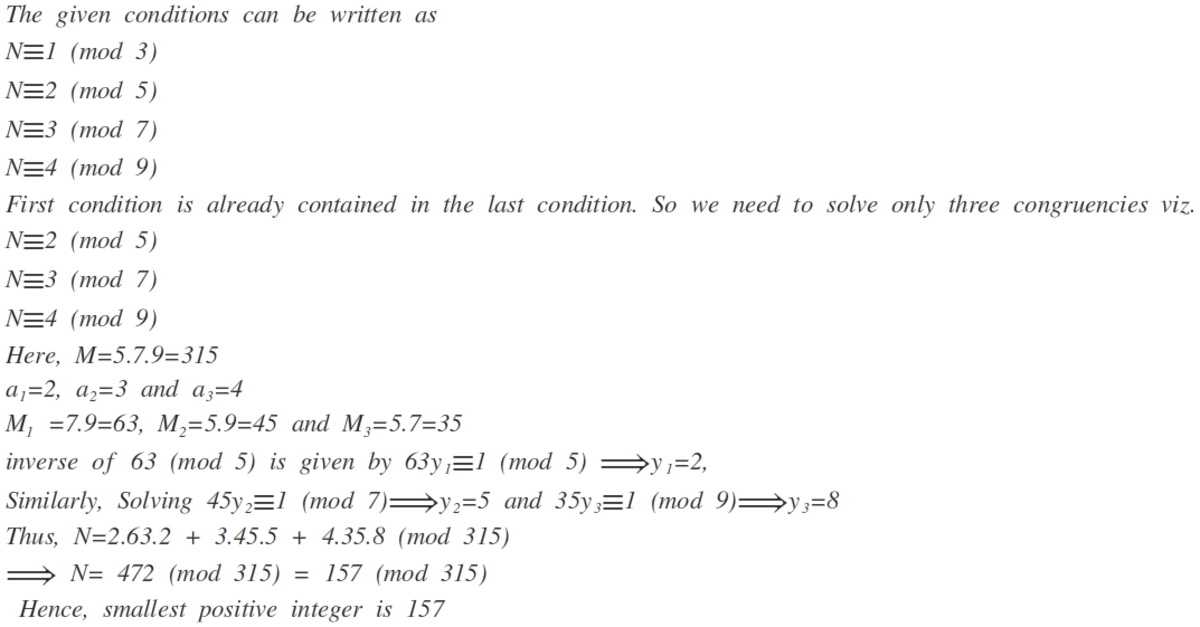The smallest positive integer
Find the smallest positive integer N having the following properties:
I. When
N
is divided by 3 the remainder is 1;
II. When
N
is divided by 5 the remainder is 2;
III. When
N
is divided by 7 the remainder is 3;
IV. When
N
is divided by 9 the remainder is 4.
The answer is 157.
This section requires Javascript.
You are seeing this because something didn't load right. We suggest you, (a) try
refreshing the page, (b) enabling javascript if it is disabled on your browser and,
finally, (c)
loading the
non-javascript version of this page
. We're sorry about the hassle.
3 solutions
Great solution; just to note, you have said "To satisfy conditions II and III" twice by accident.
Log in to reply
Thanks for catching that. The edit has been made. :)
Let the natural number which will be multiplied by each number, 3 , 5 , 7 , 9 to a .
Then N = 3 a + 1 = 5 a + 2 = 7 a + 3 = 9 a + 4 .
If N is the multiplier of the upper expressions or can be divided by 3 , 5 , 7 , 9 , then it cannot satisfy the problem.
Then let's just find the number.
9 a + 4 always satisfies that the expression, 3 a + 1 because 9 × 5 + 1 = 4 6 = 3 × 1 5 + 1 , always satisfies.
Then we can just ignore it.
N = 5 a + 2 = 7 a + 3 = 9 a + 4 .
The smallest positive integer N is 1 5 7 because 1 5 7 = 5 × 3 1 + 2 = 7 × 2 2 + 3 = 9 × 1 7 + 4 .
Hence, the answer is 1 5 7 .

The numbers that satisfy condition IV form a proper subset of those that satisfy condition I, so we can just focus on the last three conditions.
Now to satisfy conditions II and III we are looking for integers m , n such that
5 m + 2 = 7 n + 3 ⟹ 5 m − 7 n = 1 ,
the least of which are m = 3 , n = 2 . Thus N = 1 7 + 3 5 k for some integer k .
To satisfy conditions III and IV we are looking for integers m , n such that
7 m + 3 = 9 n + 4 ⟹ 7 m − 9 n = 1 ,
the least of which are m = 4 , n = 3 . Thus N = 3 1 + 6 3 j for some integer j .
we are thus looking for j , k that satisfy
1 7 + 3 5 k = 3 1 + 6 3 j ⟹ 3 5 k − 6 3 j = 1 4 ⟹ 5 k − 9 j = 2 ,
the least of which is k = 4 , j = 2 , yielding N = 1 7 + 3 5 ∗ 4 = 1 5 7 .